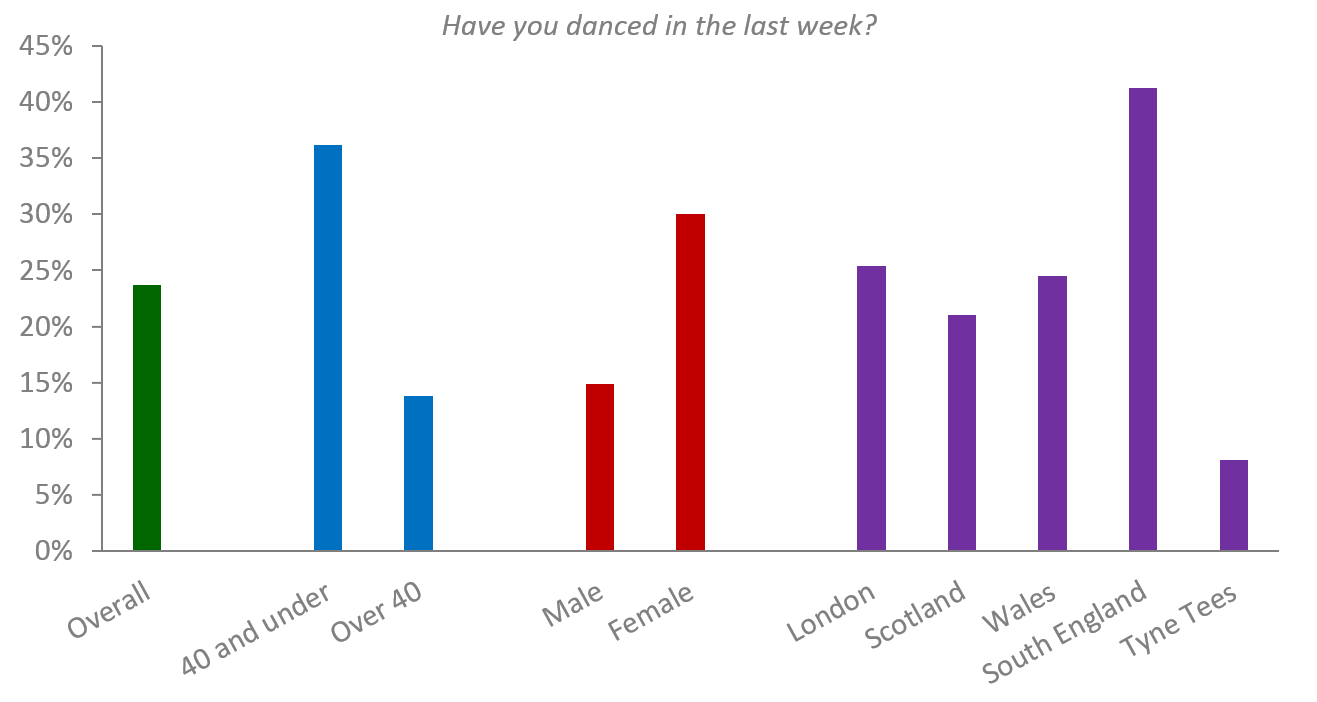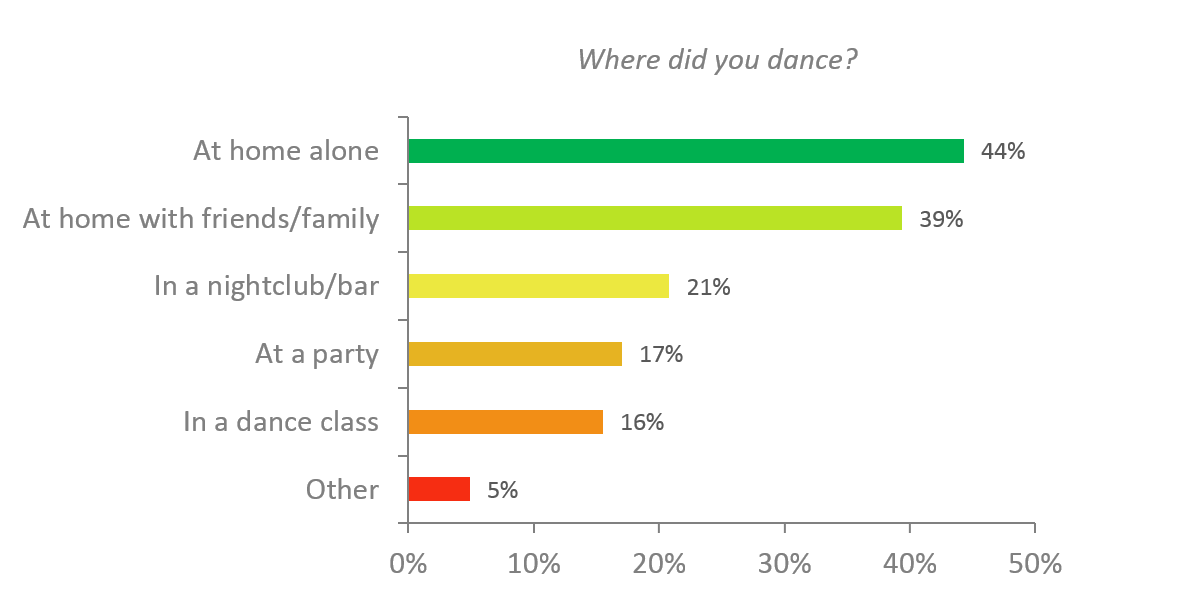Chances Are: Dancing across Britain
Posted: 21/09/2018

“Looks like Billy Elliot wasn’t enough to inspire the people of Newcastle to dance”

With Strictly Come Dancing back on our screens this weekend, we wanted to find out whether the programme’s success is inspiring Brits to dance themselves. Dancing has long been an important element of human civilisation – archaeologists suggest it was a pillar of culture up to 9,000 years ago and scientists propose it was an important instrument for passing stories down before written language. Dancing may have lost this function, but it is still a way to express yourself regardless of age, gender or background. It provides health benefits including improvements in balance, coordination, memory and fitness, and can be effective for stress relief. Thus, we wanted to understand its prevalence, and asked the British public – have you danced in the past week?
According to our findings, a quarter of Brits have danced in the past week. However, the popularity of dancing differs greatly across the regions of the UK. It turns out the people in the south of England, covering Southampton and Portsmouth, are regularly busting moves with 41% dancing in the past week. On the contrary, Geordies and others in the Tyne Tees region show the lowest rate at just 8%. This reflects the trends in exercise more generally, with southerners showing higher levels of exercise1 and higher life expectancy2 than their northern counterparts, both of which are likely associated with the higher levels of deprivation in the north. Across the country, dancers are more likely to be younger and female.

We also asked our dancers where their bopping took place. It turns out a high proportion (44%) enjoy moving to the rhythm… alone at home. This unaccompanied activity is free of judgement and has no dress code, and sometimes we just want to jump around in the comfort of our pyjamas. If people are worried about their moves being judged, this doesn’t seem to apply to those closest to us, with 39% dancing at home with friends or family.
So, the next time you find yourself twirling around your kitchen know that you’re not alone, and as Brucie would have wanted “keeeeeep dancing”!
1British Heart Foundation “Physical Activity Statistics 2015”
2Newton et. al (2015) Changes in health in England, with analysis by English regions and areas of deprivation, 1990–2013: a systematic analysis for the Global Burden of Disease Study 2013, The Lancet, 386 (10010)